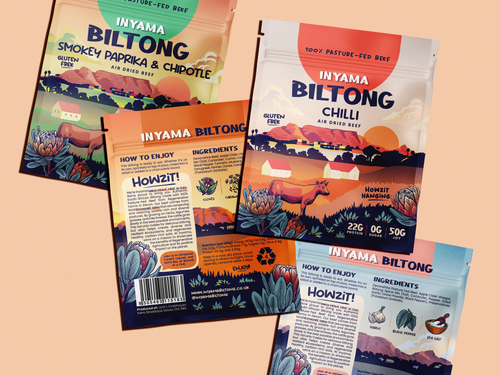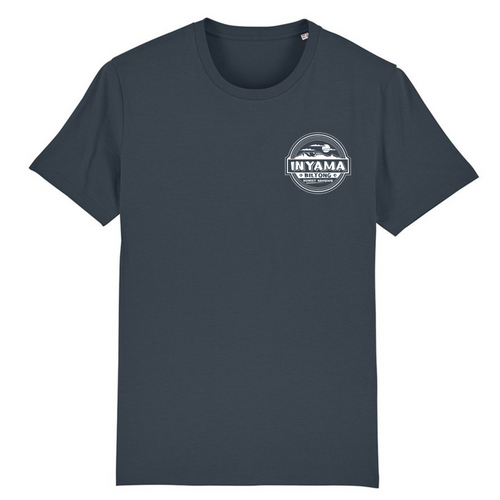Here at Inyama Biltong, we are proud of our product and the way we make it. We have two fundamental values:
- Our recipes are authentic, with no added preservatives, sugars or MSGs. It's part of the reason we started the business in the first place. We got tired of looking for good Biltong and having to google the words on the ingredients list just to know what they were.
- The beef we use and the good it does for our landscapes. That's what we want to talk about here.
We're sure at this point you've all heard the horror stories about what goes on at these large scale factory farms, and the absolute havoc it wreaks on the environment. For those that aren't aware, here are some key points:
- The push towards lower cost meat and dairy leads to intensive farming. This severely restricts animal movements and behaviours and, leads to shocking welfare standards.
- Large scale factory farms are responsible for roughly 15% of all global greenhouse gas emissions
- Increased deforestation
- Soil degradation from intensive farming leads to large scale biodiversity loss. It also leads to the release of CO2 into the atmosphere
- It causes a complete lack of traceability and understanding of where exactly our food actually comes from
THIS IS A PROBLEM.
When we set out on our biltong journey, we had to think long and hard about whether we were comfortable with contributing to the problem, in the hopes of one day making a profit.
The short answer, No.
With the Meat Snack industry on the rise we felt there was a need for the product, and even with the Finance Minister spouting Recession, we felt that the timing was right. However, we needed a solution to the problem.
Enter Luke Dale-Harris and Farm Wilder. After a 20 minute phone call and a nights worth of Rabbit-holing on Regenerative Farming, we were convinced we had found the solution.

But what is Regenerative Farming? In simple terms, nature be doing what nature does best.
If you think about it, it's actually pretty logical. The Earth has been around for about 4.5 Billion years and there's been life on it for 3.7 Billion of those years. You'd think it knew what it was doing by now, but for some reason humans think we know better. Wrong.
Regenerative agriculture is a conservation and rehabilitation approach to food and farming systems. It focuses on topsoil regeneration, increasing biodiversity, improving the water cycle, enhancing ecosystem service, supporting biosequestration, increasing resilience to climate change and strengthening the health and vitality of farm soil.
Up and down the UK, small scale farmers are stepping up and making the switch to Regenerative Farming. On these farms there is less need for herbicides and pesticides. Live stock don't require any hormones because they are allowed to reach natural maturity. Landscapes are teeming with life as the biodiversity is restored and animals lead a natural, stress free existence. Sounds great, doesn't it?
The benefits of Regenerative Farming are pretty much endless, but here are some major ones:
- Healthier produce to consumers
- Healthier and biodiverse landscapes
- More carbon is sequestered in the soil
- Soil fertility is increased organically, meaning higher crop yields as soils are more resilient to extreme weather and harbour fewer pests and pathogens
- The increase in Biodiversity means that we (as humans) get to enjoy more beautiful landscapes, which ultimately reduces stress and increase happiness (Donwynne's fact of the day!)
As you can see, the benefits are wide ranging, but there is more to this.
Ultimately, don't you think that we should know exactly where our food comes from, the processes it has gone through to get to our tables and what effects it has on our overall health?
We think that understanding your food chain is the start of a much happier and healthier life, and we all deserve that.
Inyama Biltong is extremely proud to be working so closely with Farm Wilder. Could we potentially make more money through using cheaper Beef from here, there and everywhere? Sure we could, but who gives a s**t if what we're doing is to the detriment of everything we hold dear around us.
Support your local Regenerative Farms.


